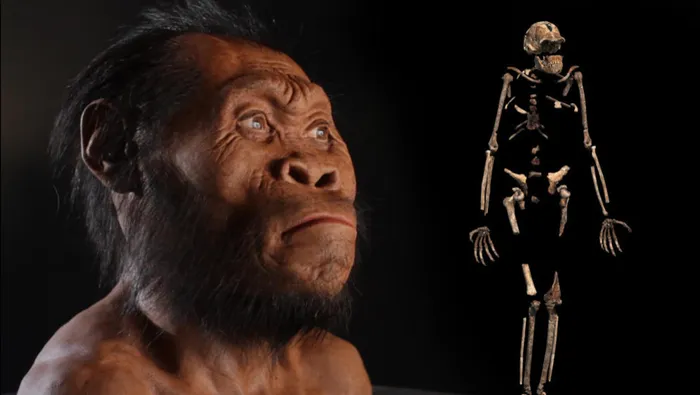Great scientific ideas don’t arise like religious revelations

Gareth Austin
Drs Sears Appalsamy is correct when he asserts that the Homo naledi issue should not be debated by religious leaders.
But he is not correct in writing that science and religion can complement each other. The fallacy lies in his assertion that, “Great scientific ideas arise more or less like religious revelations.”
No, they don’t – scientific ideas are born of natural curiosity, followed by formulating an hypothesis, and a means of testing the hypothesis in order to establish whether it can be used as a reliable model, or “theory”, for explaining and predicting a scientific phenomenon.
If later a new hypothesis is tested and found to offer a better explanation, then the new, improved theory is adopted – not because the previous theory was “wrong”, but because the new theory adds on to and elaborates on the old. Thus, Scientific Method is constantly open to improvement: experiments which disprove an hypothesis are just as important as experiments that concur with an hypothesis, and also as valid as those which build upon an existing theory.
Religious revelation, on the other hand, tends to begin with an unsubstantiated claim to have had some sort of inspiration or visitation by a supernatural being (God/an angel/an ancestral spirit) who has chosen the person in question to reveal a Great Truth or the Will of God.
If the claimant’s story is believed by enough people, these revelations develop into a religion, then typically become allied to the powers that be; and it is finally decreed as law that all people must believe without question.
If someone voices a fresh hypothesis, or simply does not comply with the faith and laws of that religion – very unlike with Scientific Method, which welcomes new ideas as an opportunity for better understanding – the dissenter is quickly branded an heretic and punished in a variety of ways, depending on the social backdrop; eg scorned, bullied, banished, imprisoned, tortured, and/or killed.
There is hardly a religion in the World which hasn’t, at some stage, employed all of these methods. And so Scientific Method and religious revelation do not derive ideas in even remotely similar ways.
Finally, when it comes down to fundamental beliefs (and many people seem to find this awkward and impolite to say), science and religion are not compatible: they do not complement each other, and their differences are irreconcilable.
Science cannot gently skirt the tricky questions (like someone trying to get off a crowded bus, “Sorry, sorry… no, stay there, it’s fine, I can squeeze past you…”), just so we can all get along nicely.
Faith-claims, like the Genesis story of creation, the virgin birth, or the resurrection of Jesus’ physical body, cannot be credited by Science. And in Science, a lack of demonstrable knowledge or any unexplained phenomenon never justifies simply making up an interesting story; or worse still, claiming that God graced you alone with some exclusive knowledge of his will. In other words, in Science, it’s OK to say, “I don’t know”; and it’s OK to disagree with anyone who claims that they do.
That said, although we may never agree on certain fundamental concepts, we should never feel offended simply because others “stubbornly” refuse to share our own views. Religious belief need not be as delicate a subject as we choose to make it. And there is no reason why a religious believer and an agnostic scientist cannot sit down and discuss such this topic over a relaxed and very polite cup of tea.